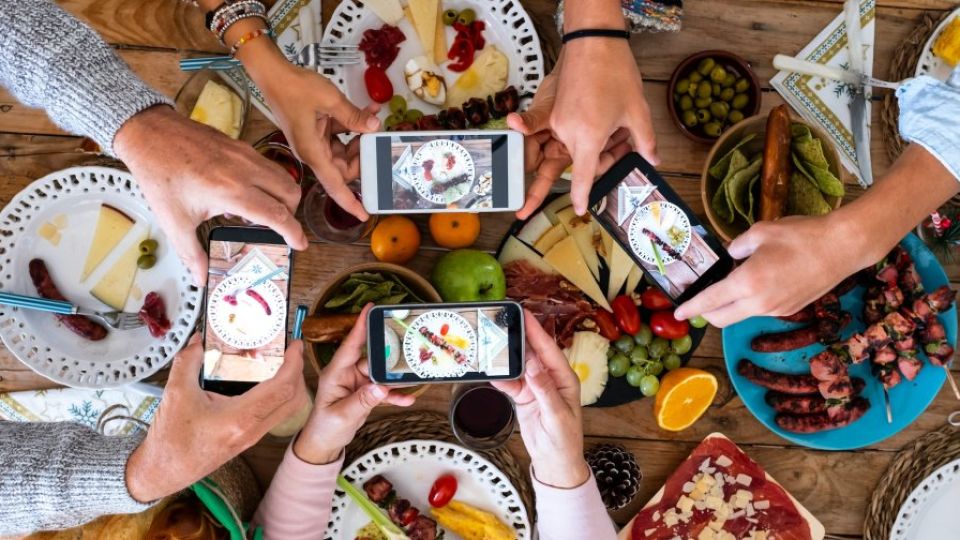September 17, 2024
MANILA – Growing up, we were likely told by our parents not to play with our food.
And today, many of us are either parents or the ninongs and ninangs of our barkada’s children. And this time, mom can’t tell us what (or what not) to do with our food.
Year in, year out
Dalgona coffee. Ah yes! That early pandemic concoction off the cupboard most would rather forget. There was a before, there is an after.
Before, we saw the ubiquity of samgyeopsal, from upscale grills in CBDs to Unli P199 neighborhood joints. Then there was ube in everything, from leche flan to champorado, a “trend” which was the norm in the Philippines for decades, got picked up in the West in the late 2010s, then re-emerged back home with new spins.
And let’s not forget milk tea. Paired with avocado toast.
After, milk tea stalls, a dime a dozen, transformed overnight into corner cafes. Many of them serve the cloyingly Filipino Spanish latte, normally made with espresso, milk, and condensed milk. The coffees are often paired with Korean corndogs and Korean egg drop sandwiches (trending side by side with Korean fashion).
In 2024, from Brat Summer to Demure Amihan, we’re seeing yet another crop of food trends: homemade tanghulu, cucumber salads (like ube and tanghulu, it’s the West fangirling over an Asian staple), and even a food process: making everything from scratch, from cereal to miso soup, where everyone is a home artisan, recalling pandemic times.
Playtime
Adulthood is often about putting others first: from work settings to household management and relationships, we put our best foot forward. There is pressure, where the consequences of mistakes are more palpable and harder to recover from versus during our school-age years.
Enter play, now recognized by psychologists as essential not just for children but for adult well-being. While most play suggestions involve recreational activities, it’s possible that recreation is about how one approaches an activity: Take cooking for weekday sustenance versus cooking up a new cucumber recipe.
Sorry, mom and dad, but sometimes, I gotta play. With my food.
Food trends, like other forms of play, could provide an oasis for tired psyches to just mess around and find out, where the only consequences are, literally and figuratively, burnt toast and spilled milk.
Social elements
Virality is nothing new as pop historians assert that photo albums in 18th century living rooms apparently served as tea-time Instagram feeds.
Maybe virality is another synonym for relatability. Sure, people fear missing out, but it’s also possible that trends start because some lucky netizen struck a chord by playfully, memorably describing something we all experience.
Take yesteryear’s “girl dinners,” where people bonded, if through hashtags, over the (hopefully occasional) tendency to skip a full meal and just graze over snack food for dinner.
Like with life’s milestones or stolen moments of rest and joy, a food trend doesn’t have to be viral, or online, for it to matter. Sometimes a trend’s “reach” can be within one’s own circles. Pics or no pics, it did happen, and it’s happening, and that’s the beauty of it.
My dad’s recently been making pancit with “Mediterranean sahog” like zucchinis and parsley, and my girlfriend and her family (and I hope her officemates, too) seem to love it. It hasn’t trended online yet for our merrily little band, it’s the moment.
While we largely cook to survive, we can also choose to cook for enjoyment, and it’s not confined to any social class.
I’ve encountered blue-collar moms, the wives of trike drivers and Maritesses of yore, who like to add Sprite or chocolate powder to their corned beef on weekends, outside the pressure of cooking daily baon as well as fisherfolk and farmers who switch between lemongrass, citruses, and sampaloc for after-work sinigang.
These, and the more visible, online trends, are all just microcosms of our human love for spicing things up. And no one, no system, no circumstance, can take that away from us.
So go ahead, throw in some tablea on your tapa.


